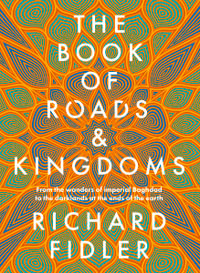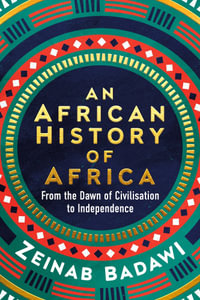Written from a digital humanities perspective, this book combines historical sources, maps, and a walking cartography to create new perspectives on the nineteenth-century history of Lagos, West Africa's most populous city.
What traces do people leave in the places where they live, and even where they die? This book addresses the spatial history of nineteenth-century Lagos, rebuilding its past as a series of encounters: between men and women, between past and present, between enslaved and free, between living and dead, and finally between land and lagoon. In Imagine Lagos, Ademide Adelusi-Adeluyi argues that the invention, destruction, and reinvention of spatial markers in Lagos-the streets, markets, roads, squares, palaces, and lagoons where these encounters occurred-was crucial to negotiations over identity, power, and freedom. Research for this book combines oral and archival sources from three countries with the experience of three summers of walking the streets of Lagos. Contrary to historical interpretations that render the physical city as a blank, featureless space in desperate need of constant repair, this book offers a variety of visual and textual narratives to push readers to imagine the old city.
Throughout Imagine Lagos, historical maps join other texts-including colonial correspondence and reports, missionary letters, oriki (Yoruba praise poetry), and newspaper articles-to create a complex collage of urban life in Lagos. Streets emerge as sites of historical memories, and Adelusi-Adeluyi's maps of the mid-nineteenth-century city reveal and catalog layers of change. A focus on the city as a whole-as both a physical and social landscape-brings us closer than ever to understanding the lives of Lagosians between 1845 and 1872. In old Lagos, the streets keep their histories.
The story maps and full-resolution maps for this book are available at https://newmapsoldlagos.com.
Industry Reviews
Imagine Lagos challenges readers to rethink the history of Lagos and other global cities by demonstrating how spatial analysis using maps and other sources transforms knowledge about their pasts. The book makes major contributions to African history and urban history as well as to the digital and spatial humanities. -- Kristin Mann, professor emerita, Emory University
In Imagine Lagos, Ademide Adelusi-Adeluyi executes an exciting analysis of maps to produce a fascinatingly novel history of Lagos in the nineteenth century. She deploys an array of digital tools and her own unique interdisciplinary analytical skills to integrate cartographic discourses into traditional historical sources. The result is a bold, brilliant history of change and multiple rebirths in a coastal West African city shaped by evolving indigenous practices, an ethnic Yoruba hinterland, a returnee Atlantic diaspora, and the marauding forces of British imperialism. -- Moses E. Ochonu, Vanderbilt University
Leveraging a rare combination of methodological tools and conceptual approaches, Ademide Adelusi-Adeluyi's Imagine Lagos conjures a vanished landscape and the ordinary residents that made it into a city into multidimensional view. It offers a meticulous and extended exploration of how spatial analysis can unearth buried social histories, gender histories, and environmental histories of African cities. Imagine Lagos lays the literal groundwork that any scholar approaching Lagos with an attention to change over time can and must engage with. -- Abosede George, author of Making Modern Girls: A History of Girlhood, Labor, and Social Development in Colonial Lagos
























